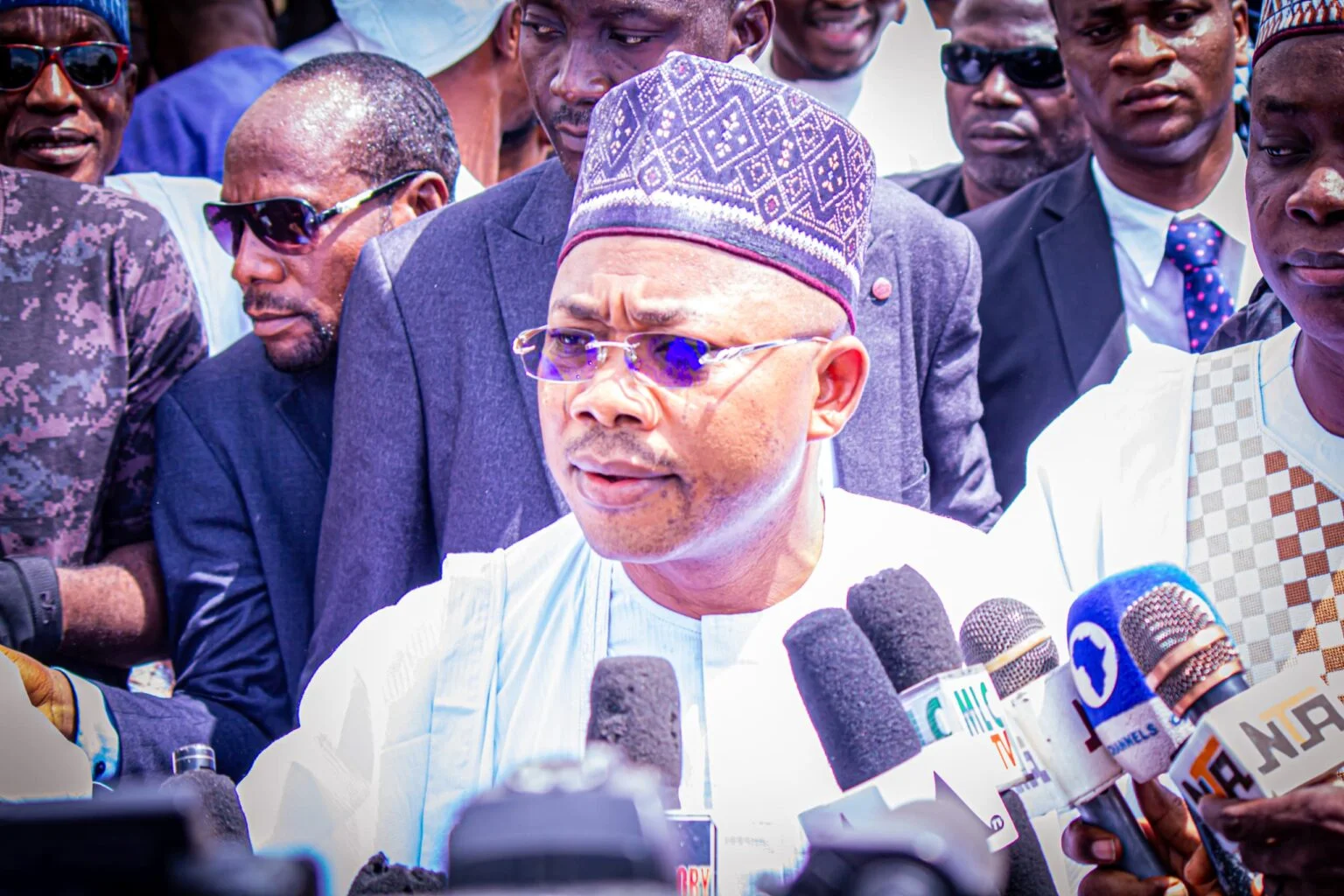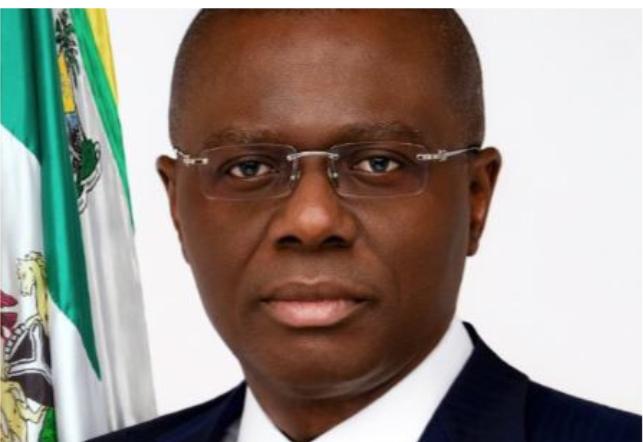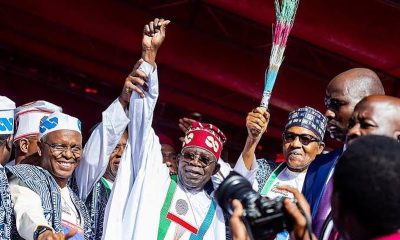NEWS
Ododo Signs Law Establishing CUSTECH Teaching Hospital

From Joseph Amedu, Lokoja
The Kogi State Governor, Alhaji Ahmed Usman Ododo, has signed a bill converting the state-of-the-art Reference Hospital, Okene into the Confluence University of Science and Technology (CUSTECH) Teaching Hospital.
This was announced in Lokoja on Tuesday by the State Commissioner for Information and Communications, Kingsley Fanwo, during a press briefing.
The move aligns with the National Universities Commission’s approval of a full-time Bachelor of Medicine, Bachelor of Surgery (MBBS) program, among other medical courses, at CUSTECH.
According to Fanwo, the step ensures the program begins on a solid foundation.“This achievement is the result of months of coordinated engagement between the university, the State Ministry of Health, and the State Ministry of Education.
We commend the State House of Assembly for passing the bill, which has now been signed into law by Governor Ododo,” Fanwo said.He emphasized the administration’s prioritization of healthcare, noting that the former Reference Hospital—now the CUSTECH Teaching Hospital—is equipped with world-class medical facilities, some of which are debuting for the first time in Africa.
“With this development, CUSTECH will have cutting-edge medical technology to train outstanding healthcare professionals for Kogi State and beyond,” he added.
Fanwo further highlighted the administration’s commitment to healthcare and education, describing the signing as a significant milestone in the state’s progress. He also expressed gratitude to the State House of Assembly for their collective effort in creating this historic achievement.
With the bill now law, CUSTECH is poised to effectively commence its MBBS program.
NEWS
TCN, BEDC Trade Blame over Power Outage on 33kV Feeder in Edo

The Transmission Company of Nigeria (TCN) has faulted the Benin Electricity Distribution Company (BEDC) for allegedly misleading the public over power outages in Edo district.
A statement by the TCN’s General Manager, Public Affairs, Ndidi Mbah, on Sunday in Benin said that TCN’s maintenance work had nothing to do with the blackout experienced by BEDC’s 33kV customers.
It would be recalled that on March 14, BEDC had claimed that TCN’s maintenance activities were the cause of power outages in Sapele, Abraka, Ugelli/Shell and industrial areas through its social media platform.
Mbah explained that TCN only requested a planned outage on March 11, at the Amukpe Transmission Station, which was completed the same day and power was restored.
Mbah emphasised that TCN’s maintenance had nothing to do with power delivery to BEDC customers.
” TCN wishes to address the publication by Benin Electricity Distribution Company (BEDC) on its social media platform, dated March 14, that TCN was responsible for the blackout, which was not true
“The announcement by BEDC’s inability to deliver power to its 33kV customers to TCN’s maintenance activities was not true.
“For clarification purposes, TCN only applied for a planned outage on March 11, at the Amukpe Transmission Station, which was completed on the same day, and bulk power supply was restored.
“Contrary to BEDC’s claims, TCN’s maintenance activities did not cause the power delivery issues experienced by BEDC’s customers, ” Mbah said.
The general manager stated that the only valid statement in BEDC’s publication was regarding the Ughelli/Shell 33kV feeder T1 60MVA, which tripped off due to a fault on March 14.
Mbah disclosed that TCN was currently working to restore bulk power supply to the affected feeder.
She emphasised that all other areas mentioned by BEDC in their release, experiencing power delivery issues, were due to a fault on BEDC’s 33kV feeders.
She urged BEDC to provide accurate information to its customers and avoid misrepresentations, stressing that facts should be made clear for the benefit of stakeholders.
Mbah reiterated that TCN remained committed to maintaining efficient and reliable electricity transmission across the country for all consumers. (NAN)
NEWS
LASG Diverts Traffic for Independence Bridge Repairs

The Lagos State Government has announced a diversion plan ahead of emergency repairs on Independence/Mekwen Bridge, inbound the Marina/CMS route.
Oluwaseun Oshiyemi, Commissioner for Transportation, confirmed the diversion in a statement made available to newsmen on Sunday in Lagos.
Oshiyemi stated that the diversion will begin on March 19 and last until May 26.
“During repairs, the road from the National Open University of Nigeria (NOUN) through Bonny Camp Bridge to Independence Bridge will be closed to vehicles.
“Likewise, the service lane at Bonny Camp Underpass Bridge inbound Independence Bridge will not be accessible to motorists.
“However, the service lane from Ahmadu Bello Way to Ozumba Mbadiwe Avenue will remain open to traffic,” he said.
Oshiyemi listed alternative routes for motorists to ease traffic flow during the repair period.
Motorists going to Victoria Island from Ahmadu Bello Way should use Ozumba Mbadiwe Avenue, Akin Adesola Street, Falomo Roundabout, then Obafemi Awolowo Road to Ring Road.
Those heading to 3rd Mainland Bridge should take Ozumba Mbadiwe Avenue, Akin Adesola Street, Alfred Rewane Road, Osborne Road, then link Ring Road.
Motorists going to Inner Marina and CMS from Ahmadu Bello Way should follow Ozumba Mbadiwe Avenue, Akin Adesola Street, Falomo Roundabout, and Obafemi Awolowo Road to J.K. Randle Road.
Drivers heading to Ahmadu Bello Way from Inner Marina or CMS will go through traffic access available.
Oshiyemi assured residents that Lagos State Traffic Management Authority (LASTMA) will manage traffic throughout the diversion period.
The commissioner urged all motorists to remain patient during the partial road closure.
He added the repairs form part of the traffic management plan by the Federal Ministry of Works for road rehabilitation in Lagos. (NAN)
NEWS
Adeleke’s $20m Fraud Allegation Against Oyetola mere Shadow Chasing – Ogundokun

A frontline politician, Chief Abiola Ogundokun, has described Gov.
Ademola Adeleke of Osun’s $20 million fraud allegation against his immediate predecessor, Adegboyega Oyetola, as mere shadow chasing.Ogundokun stated this in a statement issued on Sunday in Abuja, while reacting to a petition by Adeleke to Economic and Financial Crimes Commission (EFCC) against Oyetola.
Adeleke had, in the petition, alleged that Oyetola, the Minister of Marine and Blue Economy, misappropriated a $20 million World Bank health grant while he was governor of the state.
Ogundokun said in the state that there was nothing serious in the petition other than a drama aimed at generating negative energy toward the 2026 governorship election in the state.
He described Oyetola as a man of sterling performance in the private sector as well as due diligence and strict adherence to rules in the public service as governor.
The All Progressives Congress (APC) chieftain also described the former governor as the pride of Osun and Nigeria who should not be pulled down or given uncharitable names but encouraged to do more for the state.
According to him, there is the need to stop a destructive campaign of “I will destroy you if I can’t get it.
“Oyetola is honest to a fault,” he remarked, calling on the people of the state to join him in moving Osun forward.
Ogundokun advised Adeleke to prioritise good governance rather than engaging in frivolous activities.
“What Osun requires and deserves is focused leadership and serious engagements.
“I will advise Ademola Adeleke to stop playing politics with the exalted office of the governor by turning it to a petition writing apparatus.
“He should use the enormous power of the office to improve the lots of the people instead of deploying the state resources to bully and witch-hunt a perceived enemy or enemies.
“Writing a petition against a man like Oyetola, to me, is like chasing a shadow.
“The task before Adeleke is huge, and meeting the expectations of the people should be his priority and not fighting an imaginary political foe,” he said.
The elder statesman urged the governor not to deviate from the vision of the state’s forefathers.
Rather, he said that Adeleke should learn to build on the good foundation of his predecessor instead of finding ways to shoot down his good legacies. (NAN)















